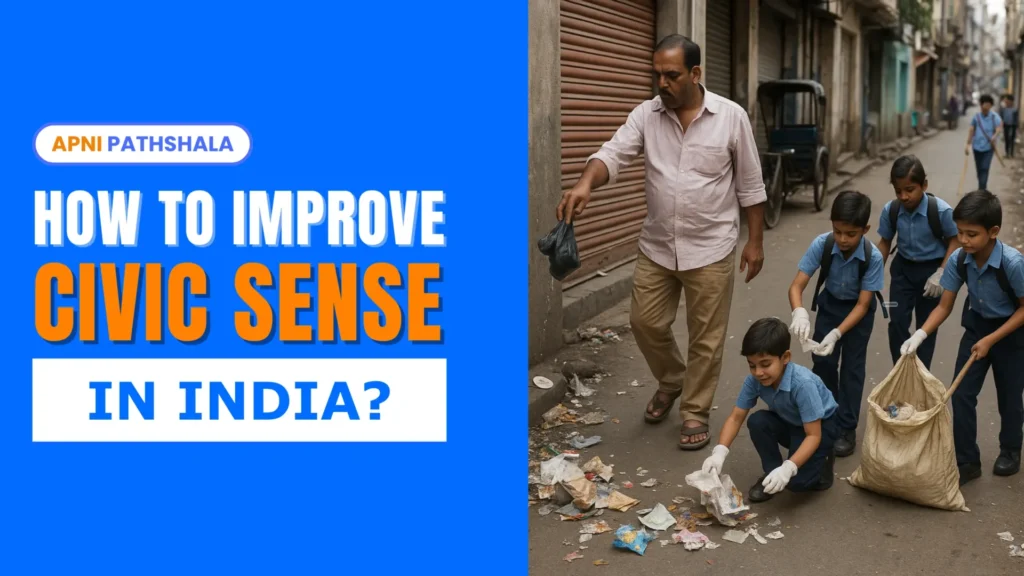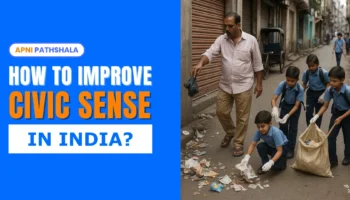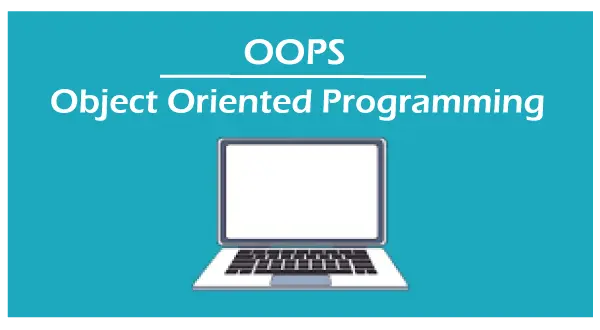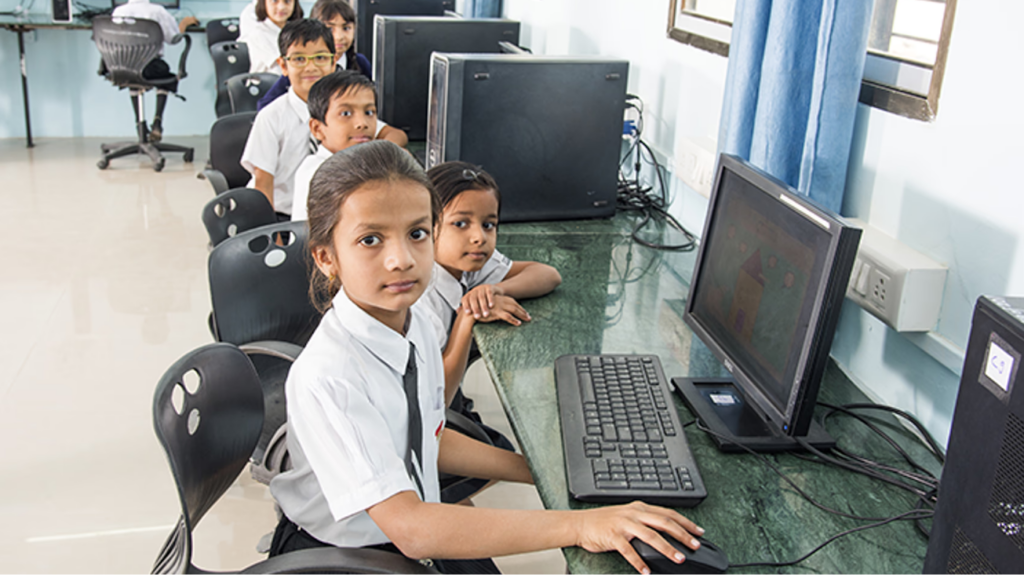Introduction
You have seen litter on roads, cars parked in no-parking zones, people spitting on walls, or garbage dumped under boards that read “Do Not Throw Garbage Here.” Ever wonder why civic sense in India remains weak? Some compare India with foreign countries, some blame the government, and many simply ignore it as if the problem will fix itself.
The government is important, but it is not the only factor that makes a country livable. It is the people.
Consider this: In just the first three months of this year, Eastern Railway collected over ₹32 lakh in fines from people spitting at railway stations in Kolkata. Imagine the numbers across all of India. Or think about the stories of passengers stealing railway blankets, fans, or headphones, small acts that damage our nation’s image.
In fact, sometimes foreigners take more responsibility for India’s cleanliness than we do. A group of foreign nationals in Gurugram recently led a community-driven drive to clear roads and drains.
This isn’t about blaming anyone, but about drawing attention to the issue, and more importantly, focusing on the solution. Let’s explore it in detail.

What Is Civic Sense?
Civic sense is the responsibility, ethics, and considerate behavior we show in public spaces. Simply put, it is how we act outside our home.
It includes:
- Keeping the surroundings clean.
- Following traffic rules.
- Respecting public property.
- Helping others in need.
- Practicing patience, discipline, and respect in society.
Without civic sense, even the best government schemes will fail. With it, society thrives.
The Problem: Why Civic Sense Is Weak in India
India was once admired for its Indus Valley Civilization, which had advanced drainage systems and clean cities. But over time, civic habits declined. Colonial rule weakened India’s traditional education system and spread the image of India as “unclean,” which even Indians themselves began to accept. Generations grew up without structured civic education in schools, and civic responsibility slowly disappeared from daily life.
Today, even though India is among the world’s largest economies, the lack of civic sense remains visible in littering, spitting, traffic violations, and disrespect for public property. This problem is generational, but not permanent. Just as Polio was eradicated through awareness and action, civic sense in India can also improve.
The solution lies in our children. The role of students in civic sense is vital because they are still forming values. If parents and teachers both share responsibility and lead by example, students can rebuild the culture of respect, responsibility, and cleanliness that India once had.
Why Civic Sense Is Weak in India
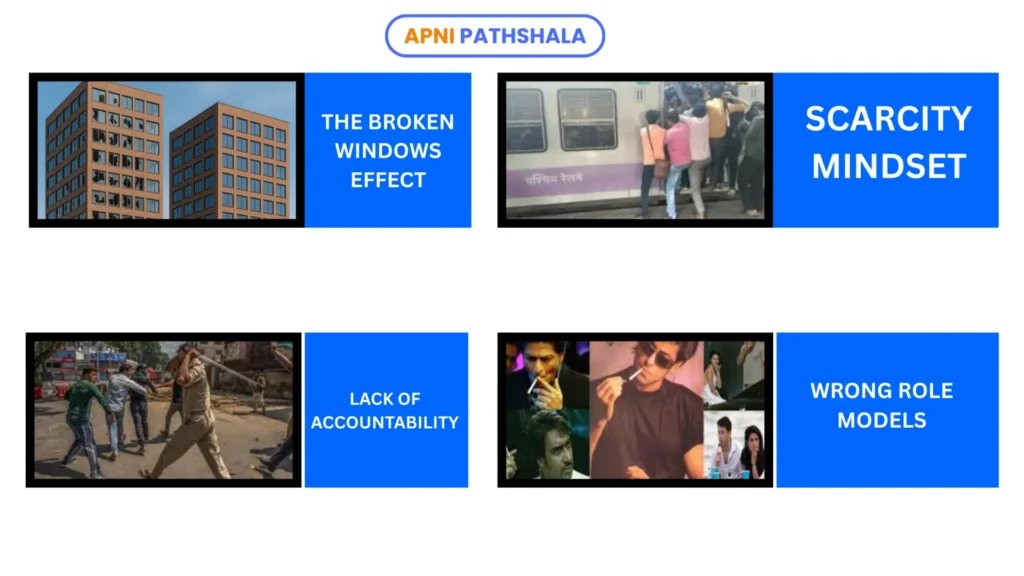
1. The Broken Windows Effect
Proposed by Wilson and Kelling (1982), this theory says: if one broken window is left unrepaired, it signals that breaking more costs nothing. Similarly, if people see garbage in a clean street, they add more. Children observe this and copy it as “normal behavior.”
2. Scarcity Mindset
We raise children to rush for opportunities, pushing and crowding, instead of preparing with patience. This “hurry or miss out” mindset leads to queue-jumping, chaos in trains and flights, and a lack of consideration for others.
3. Lack of Accountability
When officials or influential people break rules without punishment, children grow up believing rules don’t matter. In India, it often feels like “It’s not a crime if you’re not caught.” This mindset spreads across generations.
4. Cultural Conditioning
The British broke India’s traditional gurukul system, which once taught values, discipline, and civic responsibility. Instead, they built an education model to serve the empire, leaving generations untrained in responsibility. Even today, Western media often highlights only India’s flaws, damaging confidence and overshadowing the nation’s real progress.
5. Wrong Role Models
Movies often glorify careless acts like smoking or littering on the streets. In society, honest rule-followers are mocked while rule-breakers are celebrated. Children copy what they see, not what they are told.

How Students Can Improve Civic Sense
Here are practical tips students can follow and spread:
1. Keep Surroundings Clean
The best way to clean is never to make it dirty in the first place. Use dustbins at school and outside.
If bins aren’t nearby, keep trash in your bag or pocket until you find one.
Spitting and littering are disrespectful and harmful.
2. Practice Discipline and Follow Rules
Respect traffic signals, use zebra crossings, wear helmets, and walk responsibly. Read signs carefully and follow what they say, whether it’s No Parking or No Smoking. Don’t pee on the roadside; find the nearest toilet.
3. Show Respect to Others
Keep your volume low in public, avoid unnecessary honking, and respect “No Honking Zones.” Offer seats to elders, stand in queues patiently, and use polite language. Online, do not spread fake news or abusive comments. Digital civic sense is as important as offline civic sense.
4. Take Care of Public Property
Do not scribble on desks, scratch walls, or damage government property. Treat libraries, labs, and public parks as shared spaces for all.
5. Join Cleanliness Campaigns
Be part of school or community drives. Small efforts like cleaning one corner of your classroom or playground set an example for others.
6. Raise Your Voice in the Right Way
If you see a friend throwing garbage, stop them politely. Learn how local government works and ask the right questions. Stand for the right choice even if no one supports you.
7. Lead by Example
Children can remind parents and friends to follow civic rules. When students practice these habits daily, others will follow naturally.
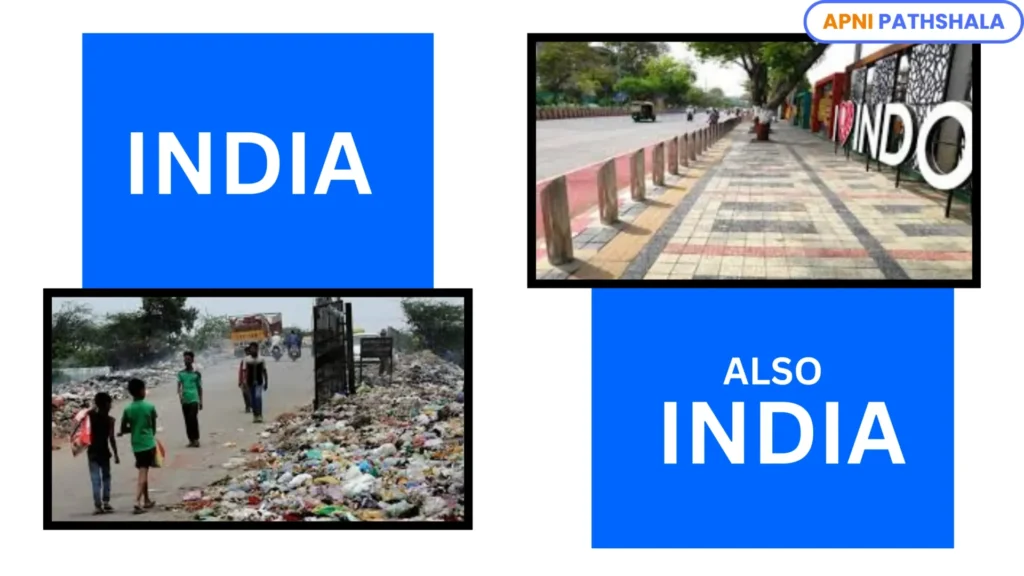
Conclusion
India’s civic issues litter, spitting, noise, broken rules are not just about policies. They are about mindsets passed from one generation to the next. Adults often ignore change because habits are hard to break. But students are still learning, still forming values.
If schools and parents together teach children civic sense the way India once taught values as “sanskar,” change is not only possible, it is certain.
India may not transform in a day. But just like polio was nearly eradicated with awareness and action, civic sense too can become the new normal.
If you’re a student, start small, throw waste in bins, follow traffic rules, and remind your family to do the same.
Share this with your students, teachers, and parents who need to read this blog.
If you want to take care of your computer, read this blog: “10 Ways to Take Care of Your Computer.“
Read more blogs like this in our Blog Section.

